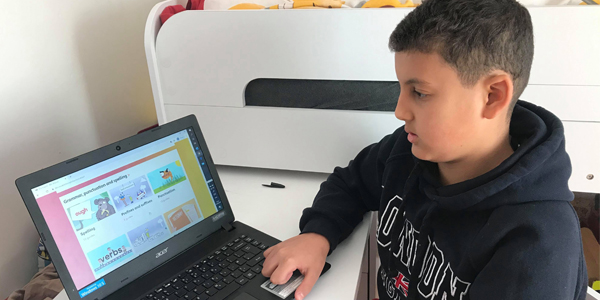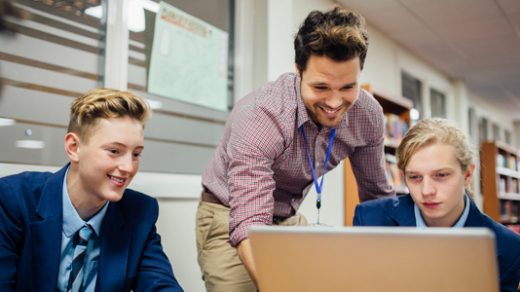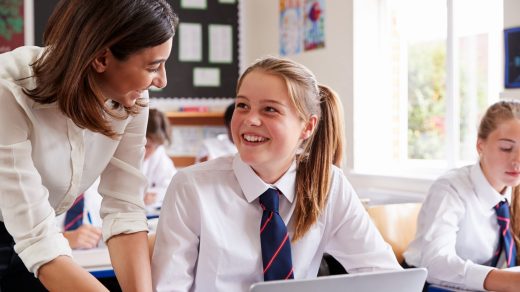Handy tips to help manage at home

Sponsored Content
In this article, Gill Rowlands provides us with some useful home advice and practical tips for parents and carers to help manage in the current climate. Gill manages the Ethnic Minority and Traveller Achievement Service (EMTAS) within School Improvement Liverpool. Gill is an experienced primary teacher, teaching both in Liverpool and London, as well as overseas in Sao Paulo, Brazil. EMTAS supports the inclusion and attainment of black and minority ethnic pupils through in class support, comprehensive training as well as inclusion initiatives.
EMTAS is really fortunate in that we have strong partnerships with a number of community and voluntary services. Straight away, we realised that we needed to get information to our parents and carers about how best they could support their children during this extraordinary time and help to alleviate any worries or concerns. With this in mind, we began to write a daily blog offering guidance and tips as well as reassurance. This has been well received by many parents across Liverpool.
The most important advice for parents and carers is to be kind to themselves. Some days will be more productive than others! Parents and carers may feel they are doing ‘a bit of a juggling act’. Some may have children at home of different ages, at very different educational levels, some may be the only adult at home, some may be homeworking too and I think all of us will be worried about other family members, relatives and friends and may have taken on extra responsibilities within our community or extended family from shopping to collecting prescriptions.
Most of us benefit from routine as do our children! I would definitely encourage parents and carers to establish a daily routine and if possible involve their children in creating this. Charts and stickers can go a long way in keeping everyone on track and can also be quite fun. At school, children have a wide range of lessons to develop a whole range of skills and talents from Maths and Literacy to Art and Music. It is really important that we build all of these experiences in, from planting seeds to making models from household items.
Parents and carers can be apprehensive that they may not be familiar with the curriculum or the methods used. But our homes provide so much memorable learning! Baking a cake is a fabulous way to explore measure and language… mixing, beating, icing, decorating… the list is endless as well as the chemical reactions involved.
Water play is a fun way to explore floating and sinking… sand play… building castles, weaving stories as well as a great way to explore capacity! Tidying the grocery cupboard! All those shapes to investigate … cubes, cuboids, cylinders and if you have a toblerone, a fabulous triangular prism. Board games can be a lovely family activity… turn taking, counting, strategic thinking can all come into play! Who doesn’t love a good game of Monopoly, Connect 4 or Guess Who?
Reading is one of the greatest gifts we can give our children. The love of books, the different worlds we can be transported to and the characters who become our best friends! Now is the perfect time to read to your child, listen to them read and model reading too.
Many of our parents are bilingual, and may feel apprehensive that they cannot support their child’s reading in English. Please don’t worry! We want you to read books and tell stories in your mother tongue, your home language, the one you feel most confident using. We want children to enjoy their reading experience.
What a perfect way to end the day listening to a story in their Mother Tongue! If your child is reading their reading book in English, please talk about the stories and pictures in your strong language. Reading skills in one language transfer to any others.
Finally, we cannot underestimate the impact on our children’s mental wellbeing. Our children will not be seeing their school friends, their favourite teachers or other members of the school community who support them on a daily basis. They may be missing grandparents or other family members who are actively involved in their day to day routine.
They will not be able to spend the same time outdoors as in the past, and when they are outdoors it will be very different because of social distancing measures. They will have no extracurricular clubs or activities to attend. With all this in mind, I go back to my original advice … be kind to yourself! Remember, children are resilient and at EMTAS, we are already planning interventions to support our children on their return to school, from family holiday support programmes to targeted accelerated learning interventions.
To find out more about the EMTAS team, or the wider School Improvement Liverpool service, visit www.schoolimprovementliverpool.co.uk/teams-emtas or email marketing@si.liverpool.gov.uk




